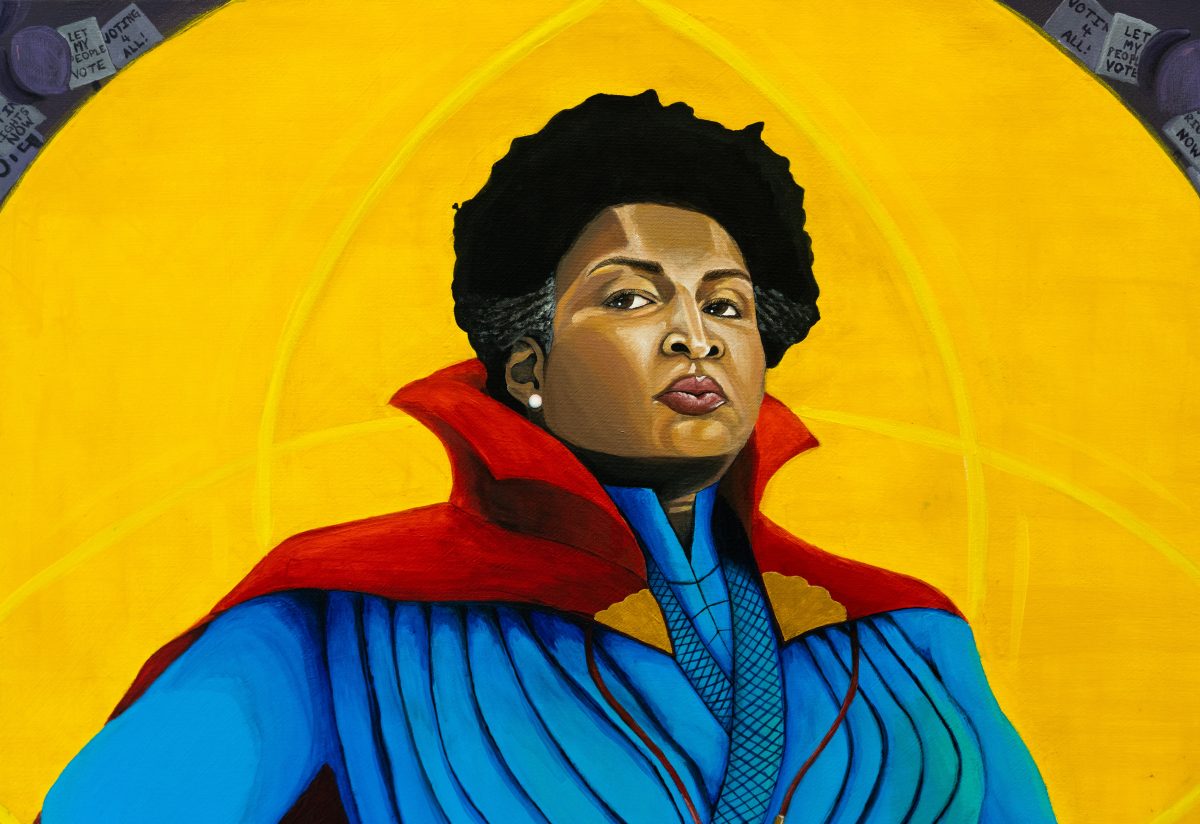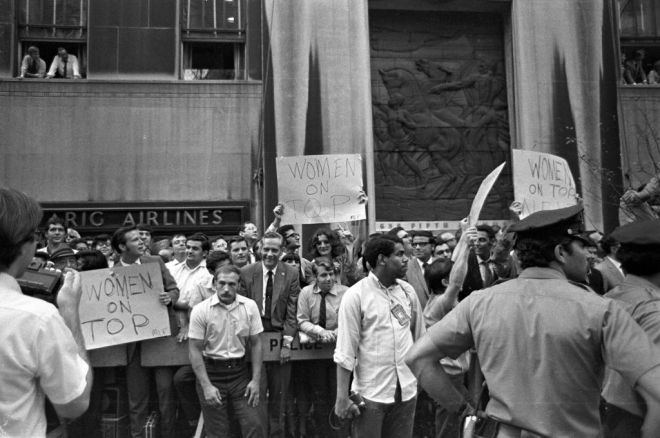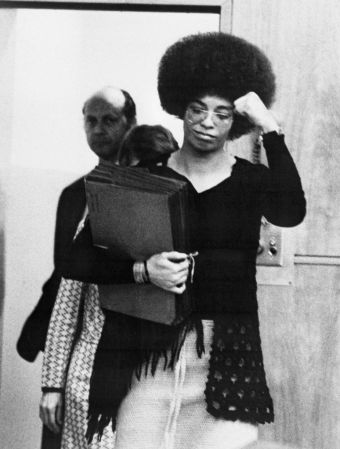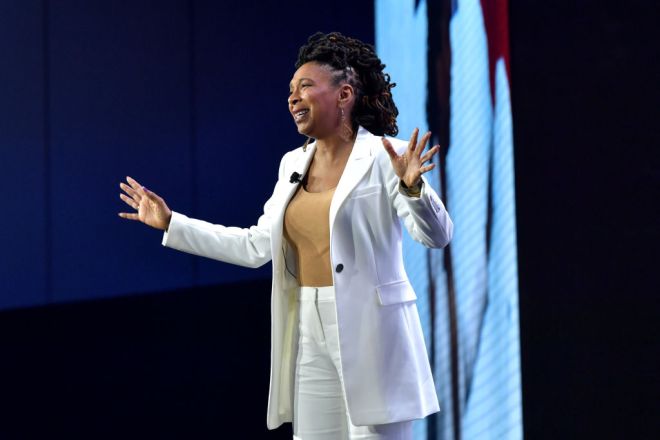The Political Power and Legacy of Black Women Is Undefeated
The Political Power And Legacy Of Black Women Is Undefeated - Page 3
Share the post
Share this link via
Or copy link

Anneke Mitchell
Last month’s election was undoubtedly marked by Black women chasing political history. Black female politicians such as Stacey Abrams, Val Demings, Yolanda Flowers and Deidre DeJear aimed higher this season to fill political spaces predominately occupied by their white and male counterparts.
Nearly a month ago when I covered the three Black women running for Governor, I stood on the conviction that America could do a lot better if they chose to elect more Black women. However, election day results were nothing short of disappointing.
In a bittersweet nature, it reminds me of history. The history of America is one including Black women leading strategic forward movements, but it is also the history of political underrepresentation among Black women.
The Abolitionist Movement and Women’s Suffrage Rights (1830–1964)

Source: Bob Parent / Getty
“The world can not move ahead without woman’s sharing in the movement, and to help give a right impetus to that movement is woman’s highest privilege.”— Frances Harper
“African rights and liberty is a subject that ought to fire the breast of every free man of color in these United States, and excite in his bosom a lively, deep, decided and heart-felt interest.”— Maria Stewart
“I am glad to see that men are getting their rights, but I want women to get theirs, and while the water is stirring, I will step into the pool.”— Sojourner Truth
Historically, Black women demonstrated immense involvement and were prime leaders in socio-political movements as early as the American Civil war. During this period, many political movements were led by Black women abolitionists such as Frances Harper, Maria Stewart, and Sojourner Truth, who were simultaneously fighting for women’s rights and the abolishment of slavery.
Though the abolitionist movement began as a fixed, organized effort to end slavery, the cause eventually became a political issue leaving America divided and up to constant debate. While early abolitionists were white, most of the prominent leaders were Black women who had escaped from bondage.
In addition to Harper, Stewart and Truth, Black women such as Mary Church Terrell, Harriet Tubman, and Mary Ann Cary had also realized the power of political rights. However, still felt sidelined by their Black male and white female counterparts during the abolition movement, who felt they did not consider the plights unique to Black women, such as voting rights.
Though women were nearing the right to vote, many women of color, — specifically Black women, still ran into obstacles due to racism, sexism and classism. Obstacles included proving the Constitution’s competence, threatening physical violence and trumping false charges. And though Black women helped advocate for all women’s voting rights, such obstacles remained for Black women after women’s right to vote was enacted in 1920.
The brutal treatment of Black women advocating for equitable rights was of major concern to Frances Harper, who utilized her expertise as a teacher and writer to help found the National Association of Colored Women in 1896 and the American Woman Suffrage Association in 1873, in the same space where Maria Stewart was becoming the earliest known Black woman to lead public lectures, and the first Black woman to write and publish a political manifesto on women’s rights and anti-slavery, in such a manner that influenced other Black women to demand equal human rights, just as Sojourner Truth did during her most iconic speech, “Aint I a Woman?”
With a strong desire for progressive causes, Black women harnessed the power to create equitable political spaces such as implementing community-based programs and holding leadership positions, all while fighting against racism and misogynoir.
RELATED CONTENT: PSALMS FOR BLACK GIRLS: Justice Ketanji Jackson And The Myth That Black Women Ain’t Magic
The Civil Rights Movement and the Black Power Movement, (1954–1980)

Source: Bettmann / Getty
“In order for us as poor and oppressed people to become part of a society that is meaningful, the system under which we now exist has to be radically changed. It means facing a system that does not lend itself to your needs and devising means by which you change that system.”— Ella Baker
“A Negro woman has the same kind of problems as other women, but she can’t take the same things for granted.”— Dorothy Height
“As a black woman, my politics and political affiliation are bound up with and flow from participation in my people’s struggle for liberation, and with the fight of oppressed people all over the world against American imperialism.”— Angela Davis
Though the abolishment of slavery brought about emancipation and granted citizenship to all, African Americans were more deprived of civil rights than ever. Racist laws such as Jim Crow left African Americans subjected to discrimination, socioeconomic inequality, disenfranchisement and violence. Through various efforts via non-violence and peaceful resistance, the Civil Rights Movement was born.
Though some methods within the movement were criticized for not moving African Americans far enough in their fight for racial equality, it did influence the racial pride and self-determining, Black Power Movement—one that while criticized for less peaceful resistance, resulted in the establishment of more Black-owned businesses and promotion of racial unity.
In the same movement highlighting the visions of Martin Luther King, Malcolm X and A. Phillip Randolph, Black women such as Ella Baker, Septima Clark, Dorothy Height, Fannie Lou Hamer, Kathleen Cleaver and Angela Davis were using their active roles and self-determination in both movements that resulted in the passage of federal laws such as the Civil Rights of 1964, rulings on federal judiciaries such as Brown v. Board of Education, the ruling of Bus segregation as unconstitutional, formation of organizations such as The Black Panther Party and the Ten-Point Program, an organization of influential events such as the 1963 March on Washington.
Black women played a variety of important supporting and leadership roles; in addition to aiding their male counterparts in power, Black women also lead organizations such as the Student Non-Violent Coordinating Committee and the Voter Education Project.
And while the Civil Rights Movement and the Black Power Movement are notably centered around Black male figures, Black women were also primary leaders in two of the most successful political movements of all time.
RELATED CONTENT: These Black Women Were Direct Allies Of Dr. Martin Luther King Jr. During The Civil Rights Movement
Intersectionality, Black Lives Matter & Say Her Name Movement, (1989-Present)

Source: Emma McIntyre / Getty
“Intersectionality is a political and structural lens through which you can see where power comes and collides, where it interlocks and intersects.”— Kimberlé Crenshaw
“…too often we have a caveat when it comes to defending, protecting, and caring for Black women and girls.”— Treva Lindsey
“Black women are held to different standards. To be a woman who is a leader, there is definitely always going to be even more scrutiny.”— Tamika Mallory
In 1989 while writing her essay, “Demarginalizing the Intersection of Race and Sex,” Kimberlé Crenshaw, a black feminist scholar, was looking for a term that spoke to the oppression of Black women in society, while also demonstrating how their social and political identities connected to create different layers of discrimination.
By 1991, Crenshaw had pioneered a whole new movement with one term. Her second essay: “Mapping the Margins: Intersectionality, Identity Politics, and Violence against Women of Color” became a new advocacy for Black women’s race and gender issues that had arrived. And the consensus was clear: The word intersectionality was born and it was here to stay.
The concept of intersectionality challenged notions that gender or class alone were primal factors in regard to women’s mainstream issues. The term, used as a way to explain the oppression of Black women, has catapulted to the forefront of political national discourse in regard to racial justice, identity politics and police brutality. While intersectionality broadened the scope to include the social and political oppression of Black women, Crenshaw would have to harness the same spirit to inform a new leading movement addressing Black women tragically killed by police.
In July 2013, three Black women, Patrisse Cullors, Alicia Garza and Opal Tometi formed the Black Lives Matter movement following the killings of Trayvon Martin, Michael Brown, Eric Garner, and among others. BLM became a social-political phenomenon seeking to address racism, inequality and discrimination against Black people—largely those killed by police. And while the movement has become internationally known for its support of Black men killed by police, it was criticized for its insufficient focus on its Black female counterparts.
In her 2014 essay: Post-Ferguson: “A Herstorical Approach to Black Violablity,” civil rights advocate, Treva Lindsey was one of many who argued that while Black women led the Black Lives Matter, Black Lives the movement sidelined the experiences of Black women in favor of Black men.
In response, Kimberlé Crenshaw, with her organization, the African American Policy Forum(AAPF) founded #SayHerName, a movement that focused specifically on the police-related killings of Black women, intersecting their names into the Black Lives Matter discourse.
#SayHerName has become a rite of passage for activists such as Tamika Mallory, who has used the term to address the tragic police killing of Breonna Taylor in March 2020.
The 2020 election made Kamala Harris the first Black woman to win and serve as the vice president in the history of the United States. In September 2022, Ketanji Brown Jackson was sworn in as the first Black female Supreme Court Justice. Although these recent elections demonstrate that Black female officials elected have increased, Black women remain politically underrepresented in all levels of government.
Misogyny, racism and classism are unfortunately still barriers that keep Black women from rising in more high political spaces. In this recent election, I was painstakingly reminded that although we possess a political power and legacy that has benefited all persons, we are still surrounded by a world where misogynists do not want to see us continue in that power, as well as racists, who don’t consider us to be their equal counterparts.
It is possible that I could understand such a barrier— this lack of Black women in politics—if there were no historical references to our active participation to lead efforts for equitable rights in America. And though Black women have been overlooked in history books, absent from the narratives of successful political efforts, the political power of Black women is a deep, undeniable span of building leading movements and breaking barriers.
Though this recent election did not demonstrate a rise in the political representation of Black women, it did expose the barriers necessary for us to aim higher. With such an expansive history and legacy in the pursuit of political power, it’s nowhere but up for the Black woman.
And while we continue to rise, exposing and jeopardizing the barriers called white privilege, misogyny, discrimination and many others alike, may we never forget that the rights of today were largely built off the leadership of Black women.
We’re not new to this, we’re rooted in this.
RELATED CONTENT: A Conversation With The Undeniable April D. Ryan: On Self Care, Structural Recognition, And Her New Book ‘Black Women Will Save The World: An Anthem‘







